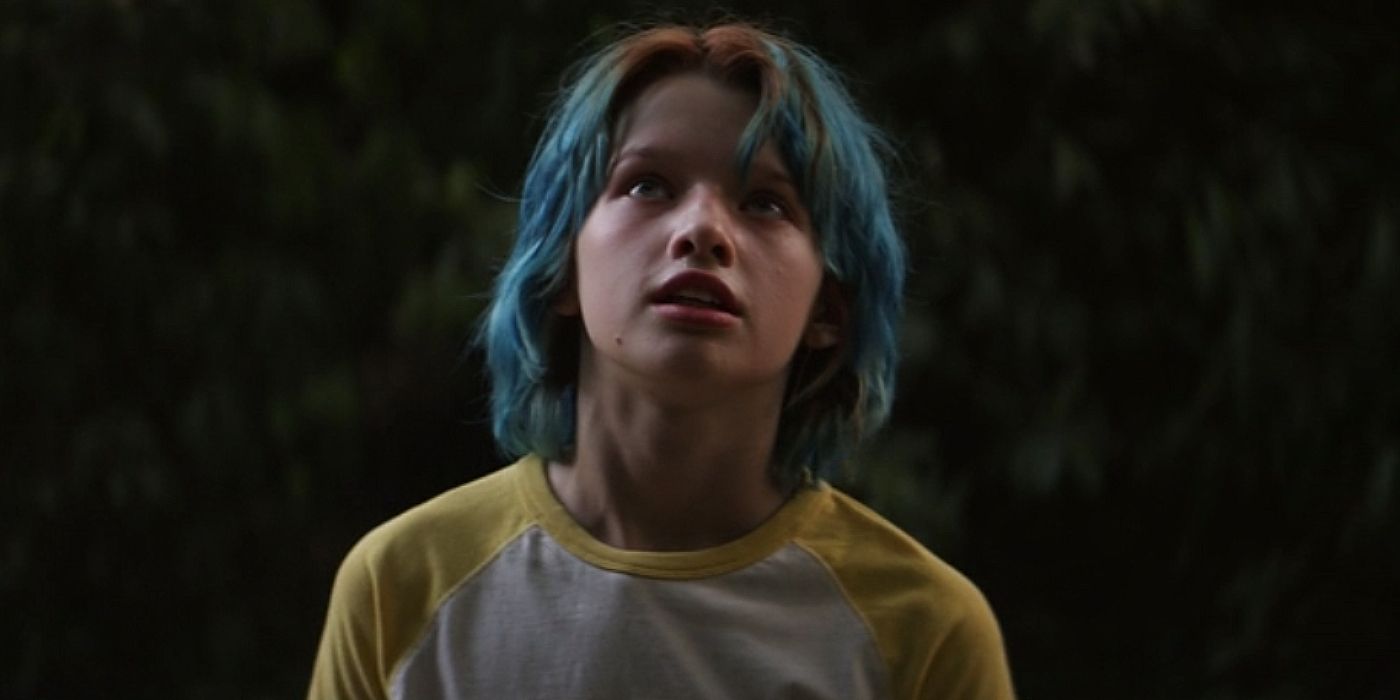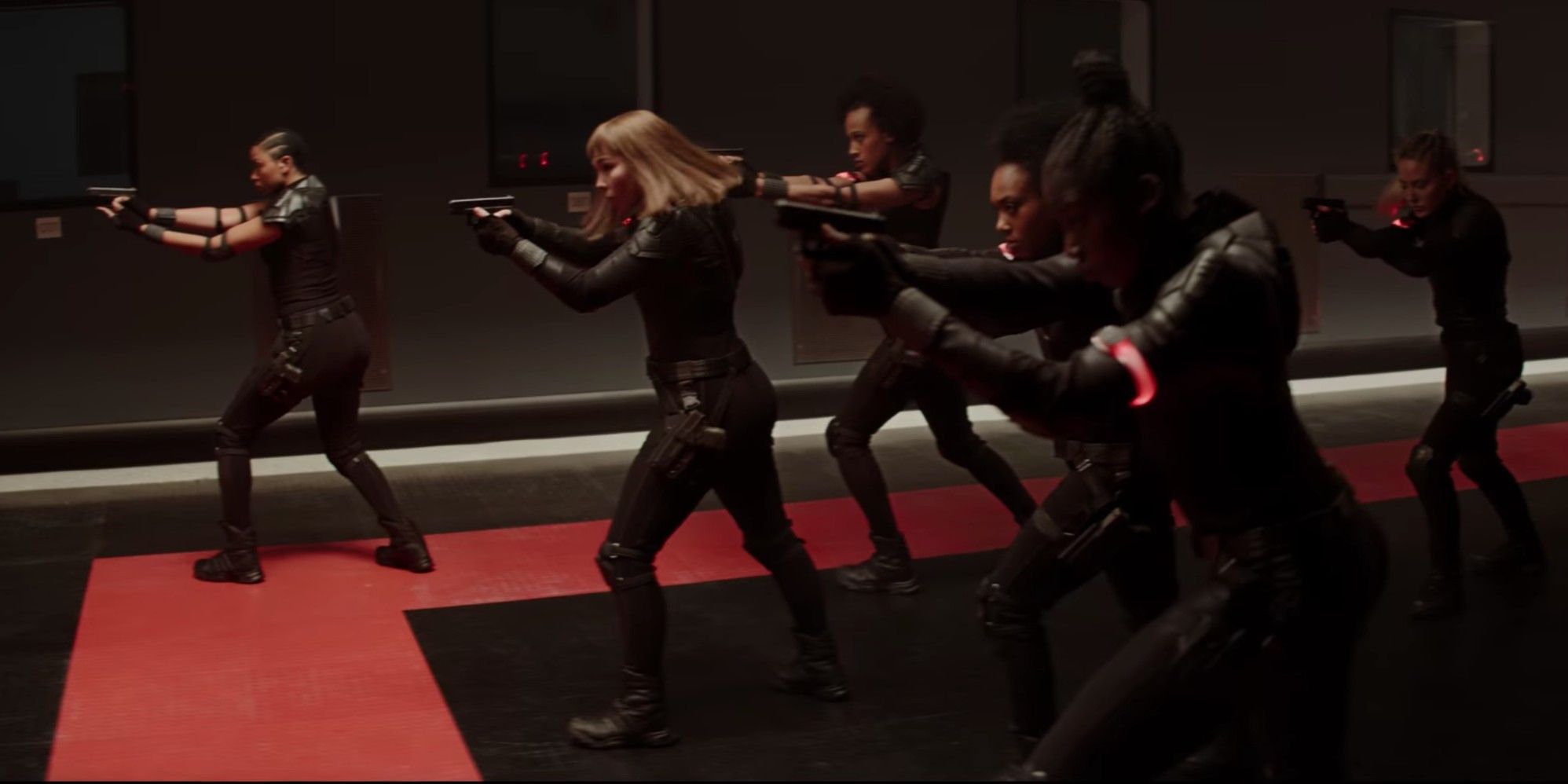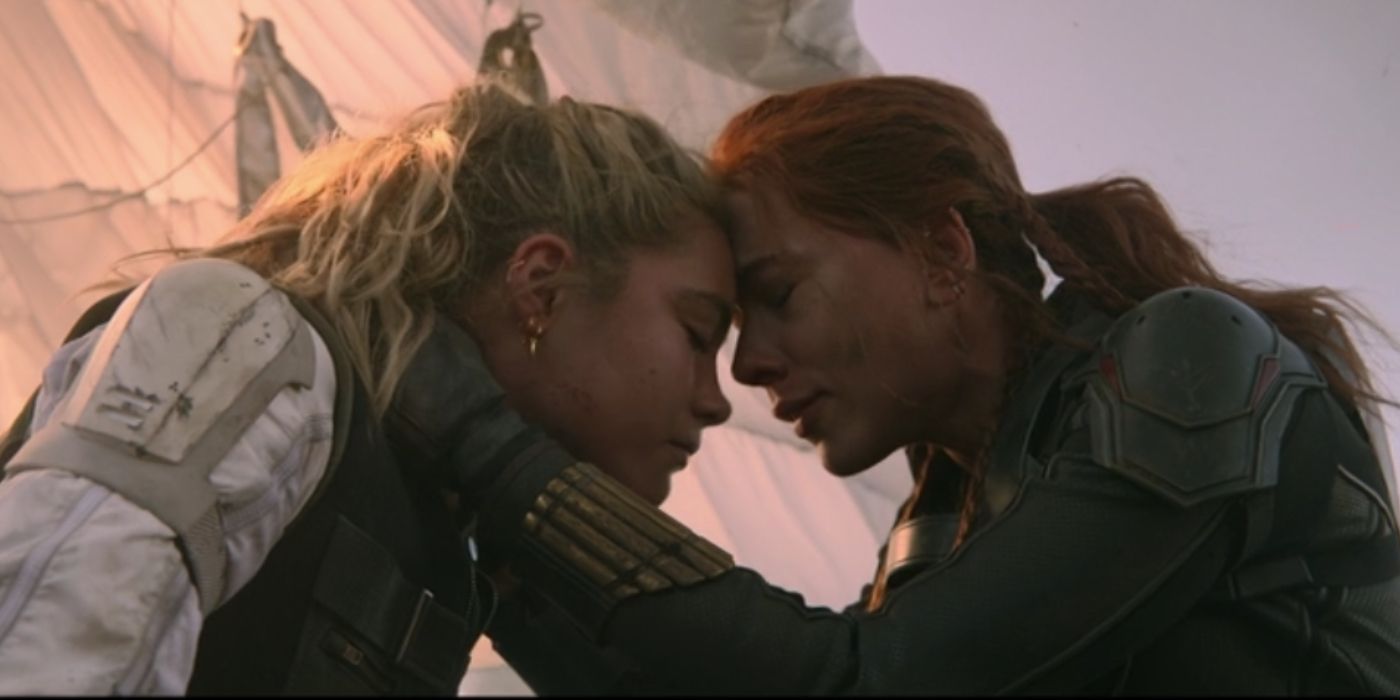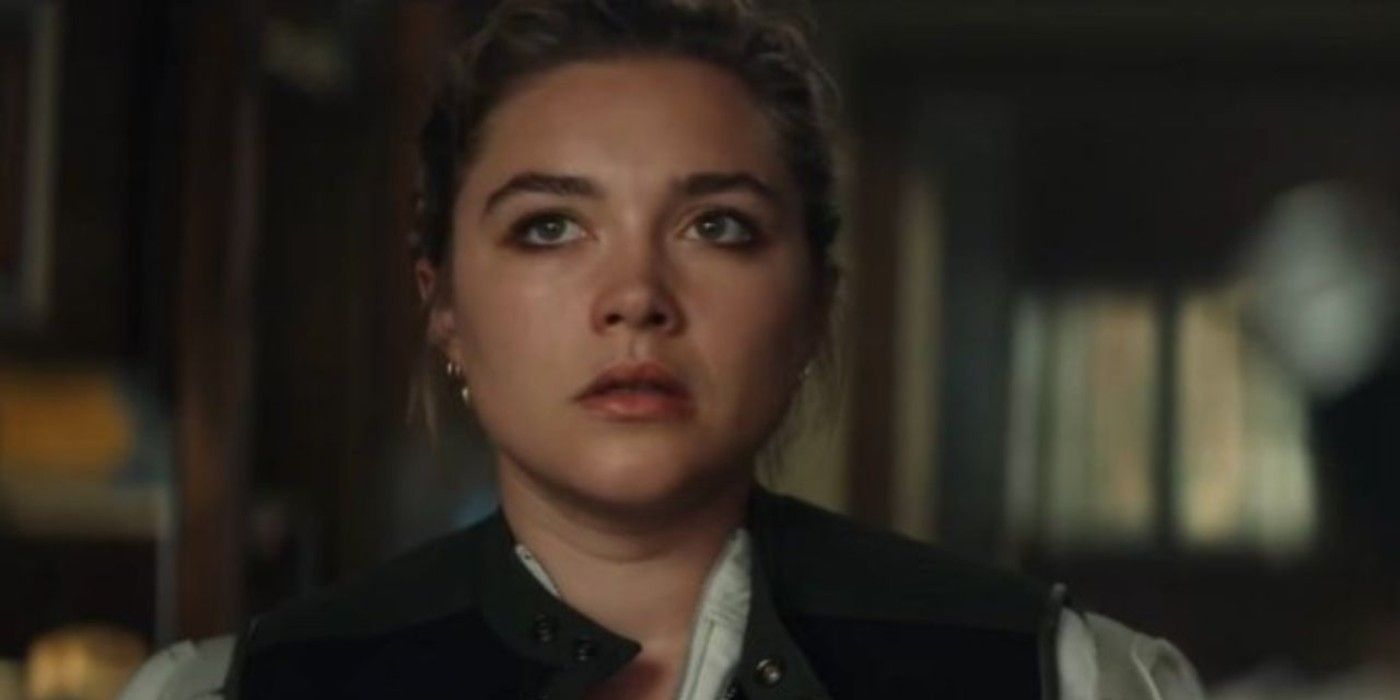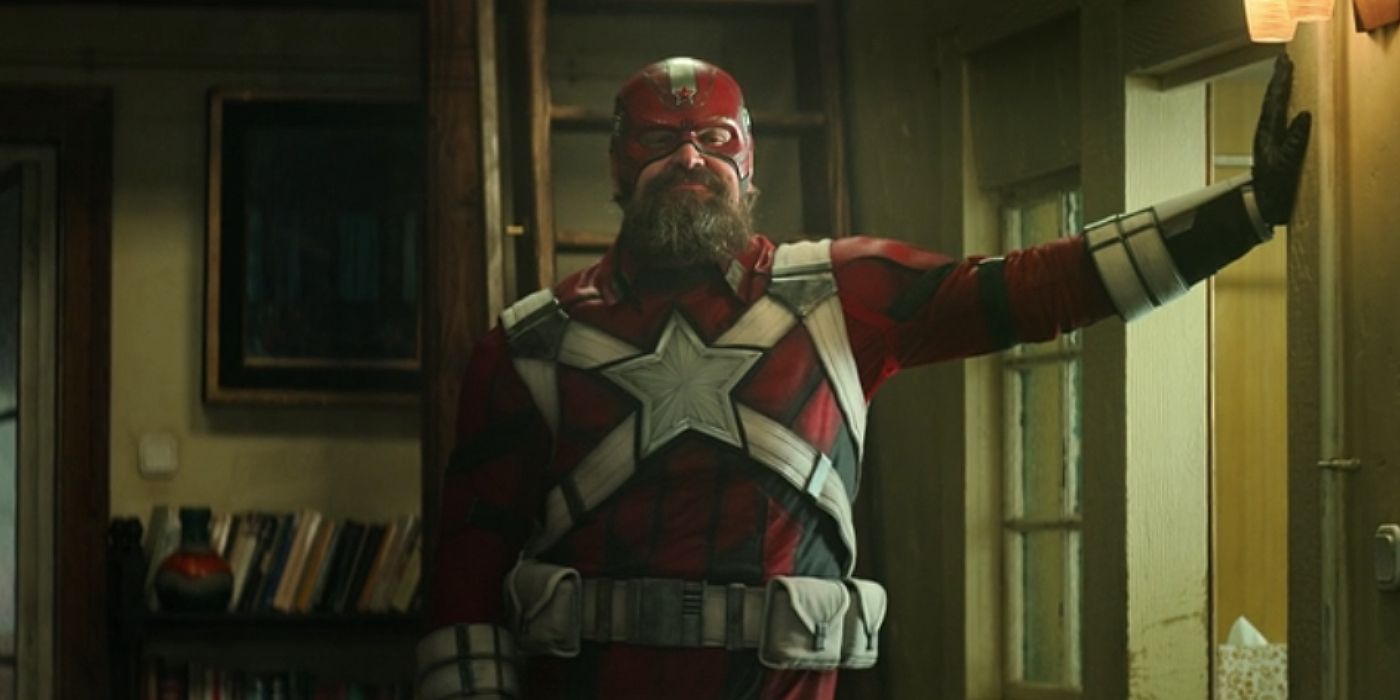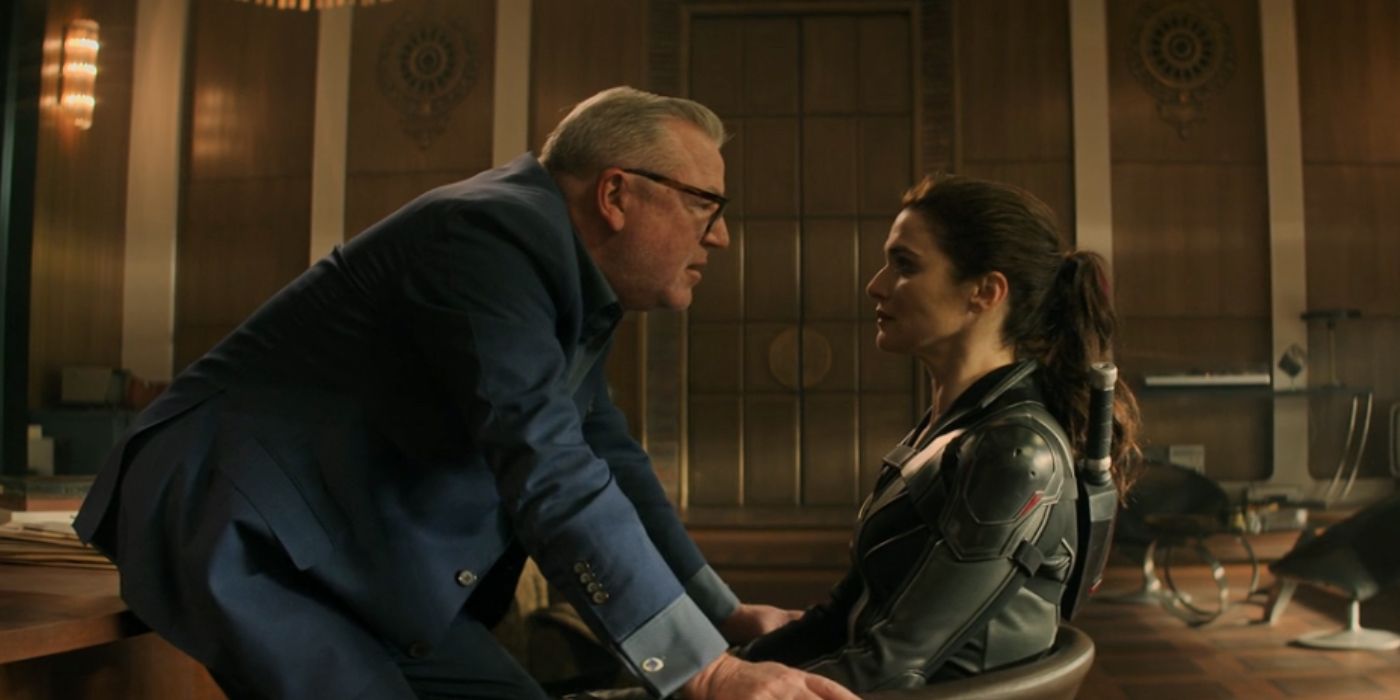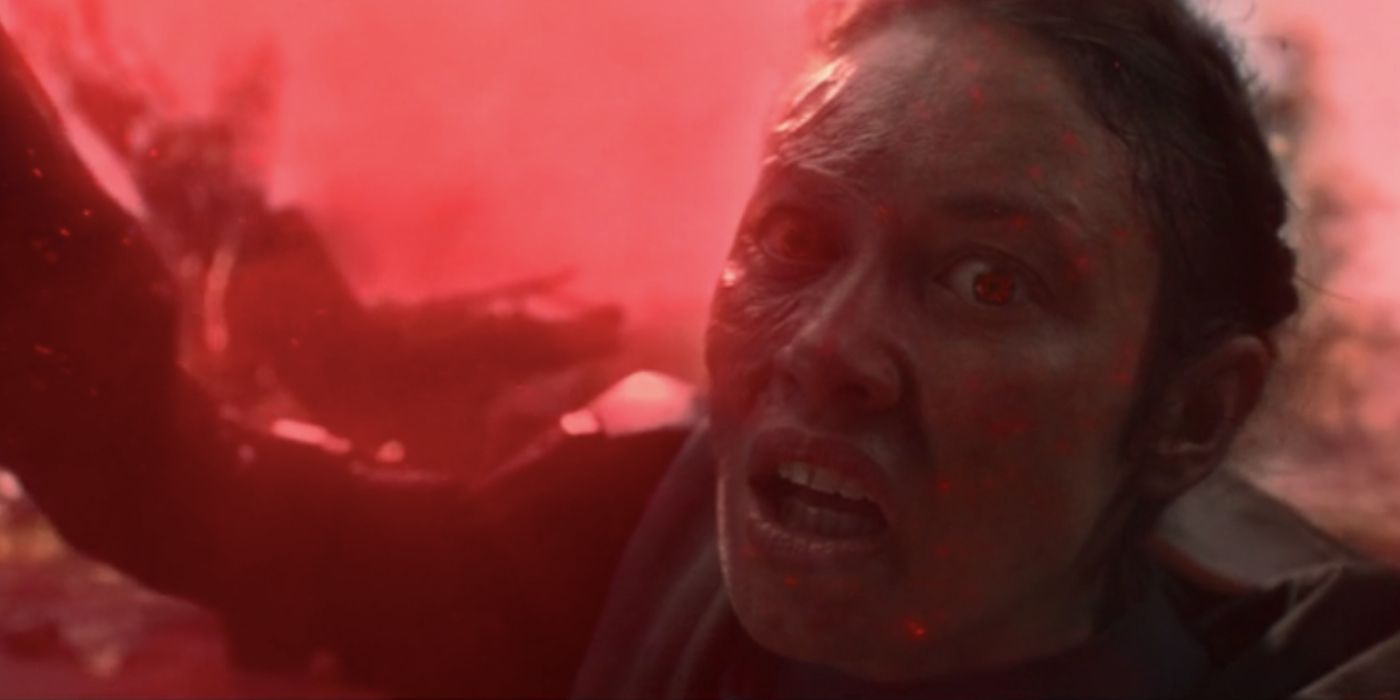Warning: This post contains Black Widow spoilers.
Black Widow is easily the most feminist Marvel Cinematic Universe movie, with an abundance of scenes affirming female experiences and exploring female relationships. The movie doesn't just rely on main character Natasha Romanoff (Scarlett Johansson) to represent all women, but includes other strong female characters like Yelena (Florence Pugh) and Melina (Rachel Weisz). The movie itself also centers around the liberation of women, as Natasha and Yelena embark on a mission to destroy the Red Room.
Marvel has a spotty track record when it comes to representing women in its multimillion-dollar franchise. While many of its 24 movies include strong female characters, less than half pass the Bechdel test, where two women must talk to each other about something other than a man. Even that count is giving the MCU some leeway on the rules - for example, during Iron Man 2, Natasha and Pepper talk about business for a second, but quickly move on to Tony. In Guardians of the Galaxy, Nebula and Gamora have a brief and hostile conversation, but again, quickly move on. Characters like Darcy (Thor), Janet (Ant-Man and the Wasp), and Shuri (Black Panther) tell young girls that they too can grow up to be smart, confident game-changers, but even in the MCU, the world revolves around men. There are almost no conversations about the lives, careers, or concerns of women. There isn't even much banter between female characters outside of Captain Marvel.
It's also worth noting that of the eight movies in which Natasha appears, only four (barely) pass the Bechdel test, including Black Widow. Natasha is arguably the most significant female character in the MCU thus far, being a member of the Avengers. During MCU movies, however, she's often underrepresented and reduced to a sidekick. Black Widow promised to put the spotlight on Natasha, and by all accounts, it delivered. The movie not only features a feminist story, but includes dozens of other moments that speak to women. Here are all the big ones.
Natasha Is A Tomboy
One of the first images of Black Widow is Natasha in her younger years, played by 13-year-old Ever Anderson. In a flashback to Natasha's early life as a sleeper agent in the U.S., she rides her bike down a suburban street in Ohio and meets her little sister in the backyard. Young Natasha's appearance is very different from her appearance elsewhere in the MCU, where she wears a skintight black catsuit and is often hyper-sexualized. In contrast, Young Natasha is relatively gender-neutral, with shoulder-length blue hair and a flat chest. It's a lovely look at a more innocent Natasha, who is fearless and filled with energy.
The Red Room Is A Metaphor For Child Trafficking
It's clear early in Black Widow that the Red Room is a metaphor for child trafficking. Natasha and her adopted sister Yelena were both taken from their families as infants and eventually sold to Dreykov. One horrifying scene shows Natasha and dozens of other young girls being transported in a shipping container and examined like livestock. Like many victims of child trafficking, Natasha and other Red Room trainees are trapped in their situation by fear of pain and death.
In one striking exchange, Melina confesses that the reason she's loyal to Dreykov is because she doesn't know how to be anything else — she was born in a cage. Natasha responds by saying she doesn't have to stay there. By tearing down the Red Room, Natasha and Yelena are freeing dozens of other women whose humanity was stripped away, who were forced to be tools. In the real world, these women might have been forced into sex slavery or sweatshops. Black Widow gives audiences some hope that can change.
Natasha And Yelena's Sisterhood
The sisterly relationship between Natasha and Yelena is a constant throughout Black Widow, resulting in a wealth of amusing and touching moments between the two. Natasha and Yelena are at each other's throats (literally) as soon as they meet, and their friendly antagonism continues throughout the film. As the little sister, Yelena is constantly picking apart Natasha's battle plans. Even in critical moments like the car chase or prison break, they spend time bickering. Natasha is the typical overprotective older sister, taking equal time to berate Yelena's mistakes and remind her to put on a seat belt.
Yelena also takes great joy in teasing Natasha about her reputation as an Avenger and her relationship with the rest of the team. "I doubt the god from space has to take an Ibuprofen after a fight," she says at one point. Later, in one of the most relatable scenes of the film, Yelena shows off her stylish and useful Army surplus vest to Natasha. Although Natasha makes fun of her at first, she eventually admits she's a fan of the piece of clothing. It's a small moment, but it's in scenes like this that many women can truly see themselves - which is especially important given how much previous Black Widow outfits were designed largely for fanservice instead of practicality. Who doesn't know the joy of finding the perfect, pocket-filled accessory?
Yelena's Frank Discussion Of Menstruation
Sexist comments are universally frustrating, so Yelena Belova became every woman's hero when she shut down a stereotypical insult from Alexei with her scathing sarcasm. After Alexei utters an old-school slight — "Is it your time of the month?" — Yelena takes him to task by unabashedly describing the details of menstruation and the trauma she and other widows went through when they suffered nonconsensual hysterectomies. "I don't have a period, dipshit," Yelena says. "I don't have a uterus."
Yelena's frank discussion of periods and female reproduction ties into a larger societal conversation about female sexuality. Menstruation is still a taboo topic in many circles, despite it being a regular part of life for most women. Having a period is an experience that spans decades, but it's often seen as "nasty" or "clinical," in Alexei's words. Making menstruation part of the dialogue in a mainstream Marvel movie helps demystify this aspect of biology and encourages others to slam people who try to shame them for it.
The Red Guardian Is An Over-The-Hill Absent Father
Marvel has always had a thing for having strong women help out weak men, but the pattern is never more apparent than with Alexei and his family in Black Widow. After years in prison, Alexei is obviously over-the-hill, unable to execute missions with the same strength and focus he once did. He can't do anything in the movie without the help of Natasha, Yelena or Melina, as becomes immediately obvious when he fails to escape from prison despite everything being in his favor. Throughout the movie, the Red Guardian is overconfident, arrogant and proved wrong again and again. A perfect example of this is his confidence he and his girls have enough fuel to reach St. Petersburg, despite Yelena telling him otherwise. Midway through their flight, the helicopter drops out of the sky.
Throughout Black Widow, Alexei also assumes the role of an absent father, confident in his opinion that he's done the right thing by his daughters. Although Alexei's made many mistakes, as evidenced by the way his daughters' lives have turned out, he's unrepentant. Alexei does earn some trust toward the end of the movie, when he seems to finally recognize the mistakes he's made. He attempts to make genuine apologies to Natasha, Yelena, and Melina. In another feminist twist, however, the women don't have time to stick around for his speeches. They've already moved on and are taking action, without the need for Alexei's approval.
Dreykov Is The Embodiment Of Sexism
Black Widow's villain, Dreykov - as portrayed by Ray Winstone - is a slimy, abusive sexist who believes women and girls are possessions rather than people, crafting the Red Room for his own foul benefit. His performance as a man in power is perhaps almost too real as he calls Melina up to his office to monologue to her. Dreykov's later confrontation with Natasha is equally disturbing, as he quickly turns from making quips to brutally beating her down because she dared to challenge him and his authority - all done under the belief Natasha's time in the Red Room had left her physically unable to harm him. Natasha eventually gains the upper hand, revealing her behavior was part of a long con, but Dreykov's short time in the spotlight is enough to turn everyone against him, making his death by explosion one of the most satisfying parts of the movie.
The Liberation Of Taskmaster
The next biggest moment of catharsis in Black Widow is when Natasha frees Taskmaster, a.k.a. Antonia Dreykov, from her brainwashing, as the revelation that Dreykov enslaved his own daughter after her near-death in Budapest is horrifying. Again, Dreykov refers to his own child as though she were just an object, all the while ignoring the fact that her detached demeanor is the result of his own tampering. The revelation about Taskmater's origin changes everything about the movie. Instead of being an enemy, Taskmaster is a fellow Widow, another one of Natasha's sisters who has been cruelly denied free will. Natasha risks her life to save Antonia and ultimately succeeds, freeing her from brainwashing. Antonia's one and only line in the movie is a question to Natasha - "Is he dead?" - which she answers by assuring Antonia she'll never have to see her tormentor again.


